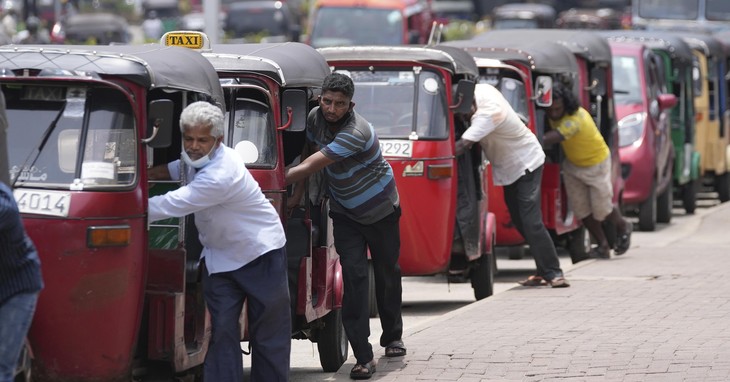Foolish Western Idealism Crushes Sri Lanka's Economy
Over the weekend, a mass of angry Sri Lankan citizens swarmed the presidential palace over an absolute economic collapse in the country, forcing the nation’s prime minister to resign and leading to more civil unrest.
There has been a lot of talk over the country’s struggles, but ultimately a lot of the blame comes down to western environmental activism taking hold of the country’s policies and encouraging Sri Lanka to switch how it grows its own food. This has led to smaller crop yields, a massive increase in importing food, and plenty of angry citizens.
The problem in Sri Lanka comes from two separate issues that, together, absolutely devastated their ability to be largely self-sufficient. The first was the push to ban chemical fertilizers.
The dramatic fall in yields follows a decision last April by President Gotabaya Rajapaksa to ban all chemical fertilizers in Sri Lanka – a move that risks undermining support among rural voters who are key to his family’s grip on Sri Lankan politics.
Although the ban was rolled back after widespread protests, only a trickle of chemical fertilizers made it to farms, which will likely lead to an annual drop of at least 30% in paddy yields nationwide, according to agricultural experts.
This is coupled with a reluctance on the part of the island nation to introduce GMOs to their farming practices. As a result, the all-organic farming experiment in Sri Lanka has failed.
The farrago of magical thinking, technocratic hubris, ideological delusion, self-dealing, and sheer shortsightedness that produced the crisis in Sri Lanka implicates both the country’s political leadership and advocates of so-called sustainable agriculture: the former for seizing on the organic agriculture pledge as a shortsighted measure to slash fertilizer subsidies and imports and the latter for suggesting that such a transformation of the nation’s agricultural sector could ever possibly succeed.
The second issue that is leading to the Sri Lankan crisis is the same series of unfortunate events that has hurt many countries across the globe. Before the COVID-19 pandemic swept across the globe, the World Bank reported that Sri Lanka had achieved upper-middle-income status, only for the pandemic to drop half the country back down to below-poverty levels. Inflation, also being seen worldwide, also hit the country hard.

But it’s the push of a foolish western religion – the issue of climate change – that is at most to blame here. The country was largely self-sufficient in rice production until the fertilizer ban and its top export, tea, was also crippled by the ban. Rice production fell by 20 percent in less than a year. Tea farming, which is the country’s biggest source of jobs, and its collapse has had a major impact on the nation’s citizens, leading to the civil unrest we’re seeing today.
In all likelihood, COVID-19 sped up this particular collapse. The economic disaster that was our global COVID policy hurt everyone, but it really showed the ugly reality in a lot of economic areas.
A friend pointed out recently that America as a country is both wealthy enough and, for lack of a better term, tolerant enough of foolish western liberalism that we can survive their agenda much better than, say, a small island nation on the other side of the world with nowhere near the economic engine we have. As it turns out, you have to be able to actually afford the losses you’d incur to put these policies in place, and you’ll be operating at a loss for pretty much the foreseeable future.
These policies aren’t sustainable for anyone, but especially for those countries in the developing or only recently-developed world, it’s especially harmful. That won’t stop the left from pushing its religion on others at home and abroad, potentially crushing more nations along the way to their twisted version of utopia.





Post a Comment